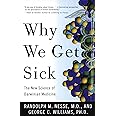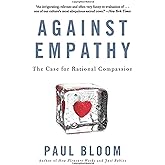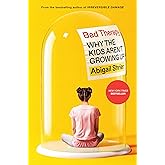
Amazon Prime Free Trial
FREE Delivery is available to Prime members. To join, select "Try Amazon Prime and start saving today with FREE Delivery" below the Add to Cart button and confirm your Prime free trial.
Amazon Prime members enjoy:- Cardmembers earn 5% Back at Amazon.com with a Prime Credit Card.
- Unlimited FREE Prime delivery
- Streaming of thousands of movies and TV shows with limited ads on Prime Video.
- A Kindle book to borrow for free each month - with no due dates
- Listen to over 2 million songs and hundreds of playlists
Important: Your credit card will NOT be charged when you start your free trial or if you cancel during the trial period. If you're happy with Amazon Prime, do nothing. At the end of the free trial, your membership will automatically upgrade to a monthly membership.
Buy new:
$14.20$14.20
Ships from: Amazon.com Sold by: Amazon.com
Save with Used - Good
$7.07$7.07
$3.98 delivery Wednesday, June 11
Ships from: glenthebookseller Sold by: glenthebookseller

Download the free Kindle app and start reading Kindle books instantly on your smartphone, tablet, or computer - no Kindle device required.
Read instantly on your browser with Kindle for Web.
Using your mobile phone camera - scan the code below and download the Kindle app.



 Audible sample
Audible sample Follow the author
OK
Good Reasons for Bad Feelings: Insights from the Frontier of Evolutionary Psychiatry Paperback – International Edition, February 6, 2020
Purchase options and add-ons
With his classic book Why We Get Sick, Randolph Nesse established the field of evolutionary medicine. Now he returns with a book that transforms our understanding of mental disorders by exploring a fundamentally new question. Instead of asking why certain people suffer from mental illness, Nesse asks why natural selection has left us all with fragile minds.
Drawing on revealing stories from his own clinical practice and insights from evolutionary biology, Nesse shows how negative emotions are useful in certain situations, yet can become excessive. Anxiety protects us from harm in the face of danger, but false alarms are inevitable. Low mood prevents us from wasting effort in pursuit of unreachable goals, but it often escalates into pathological depression. Other mental disorders, such as addiction and anorexia, result from the mismatch between modern environments and our ancient human past. And there are good evolutionary reasons for sexual disorders and for why genes for schizophrenia persist. Taken together, these insights and many more help to explain the pervasiveness of human suffering, and show us new paths for relieving it.
Good Reasons for Bad Feelings will fascinate anyone who wonders how our minds can be so powerful, yet so fragile, and how love and goodness came to exist in organisms shaped to maximize Darwinian fitness.
- Print length320 pages
- LanguageEnglish
- PublisherPenguin
- Publication dateFebruary 6, 2020
- Dimensions5.12 x 0.87 x 7.8 inches
- ISBN-100141984910
- ISBN-13978-0141984919
Book recommendations, author interviews, editors' picks, and more. Read it now
Frequently bought together

Customers who viewed this item also viewed
Product details
- Publisher : Penguin
- Publication date : February 6, 2020
- Language : English
- Print length : 320 pages
- ISBN-10 : 0141984910
- ISBN-13 : 978-0141984919
- Item Weight : 9.8 ounces
- Dimensions : 5.12 x 0.87 x 7.8 inches
- Best Sellers Rank: #350,130 in Books (See Top 100 in Books)
- #401 in Anatomy (Books)
- #810 in Emotional Mental Health
- #987 in Popular Psychology Pathologies
- Customer Reviews:
About the author

Randolph M. Nesse, MD is Professor of Life Sciences and ASU Foundation Professor at Arizona State University, where he became the Founding Director of the Center for Evolution Medicine in 2014. He was previously Professor of Psychiatry and of Psychology at the University of Michigan where he led the Evolution and Human Adaptation Program and helped to establish one of the world’s first anxiety disorders clinics. His research on the neuroendocrinology of anxiety evolved into studies on why aging exists. Those studies led to collaboration with the evolutionary biologist George Williams on "Why We Get Sick: The New Science of Darwinian Medicine," a book that initiated much new work in the field of evolutionary medicine. His current research is on how selection shapes mechanisms that regulate defenses such as pain, fever, anxiety and low mood. Closely related work investigates the origins and functions of emotions, why emotional disorders are so common, and how social selection shaped human capacities for altruism and moral emotions. His mission is to establish evolutionary biology as a basic science for medicine. Dr. Nesse is the President of the International Society for Evolution, Medicine & Public Health. He is a Distinguished Life Fellow of the American Psychiatric Association, a Fellow of the Association for Psychological Sciences, and an elected Fellow of the AAAS. His website is at http://nesse.us
Customer reviews
Customer Reviews, including Product Star Ratings help customers to learn more about the product and decide whether it is the right product for them.
To calculate the overall star rating and percentage breakdown by star, we don’t use a simple average. Instead, our system considers things like how recent a review is and if the reviewer bought the item on Amazon. It also analyzed reviews to verify trustworthiness.
Learn more how customers reviews work on AmazonCustomers say
Customers find the book readable, with one noting how it describes complex matters in understandable language. They appreciate its knowledge, with one customer highlighting how it provides a roadmap to a new psychiatry.
AI-generated from the text of customer reviews
Select to learn more
Customers find the book readable, with one noting how the author describes complex matters in understandable language.
"...AND... I loved this book, perhaps even better than some of the other seminal books in psychology, like those by Kahneman and Seligman...." Read more
"This is a very insightful book that I really think that anyone who is interested in mental health or the mental health field should read it" Read more
"...scientist who can write like the wind, describe complex matters in understandable language, and entertain the reader with clinical stories of real..." Read more
"The is an easy-to-read encyclopedia of everything that has been learned about the relationship of mental illness to human evolution by the founder..." Read more
Customers find the book informative, with one mentioning it provides a roadmap to a new psychiatry and another noting how it helps understand the origin of mental illness.
"...The technical and explanatory level is excellent and convincing AND the stories are very interesting and well-written, even entertaining in many..." Read more
"...speculation in this book, but the author shows a through understanding of evolutionary theory and the literature...." Read more
"The idea is great, but I think much of the text is off topic, many important scientific facts related to evolution and emotions are not mentioned,..." Read more
"...There are many strengths to the book. Dr. Nesse structures the narrative arc with his personal professional journey...." Read more
Top reviews from the United States
There was a problem filtering reviews. Please reload the page.
- Reviewed in the United States on February 15, 2019For years and years, I have studied the area of human “operations” and written full time about what works in life. AND... I loved this book, perhaps even better than some of the other seminal books in psychology, like those by Kahneman and Seligman.
The technical and explanatory level is excellent and convincing AND the stories are very interesting and well-written, even entertaining in many ways.
It is relatively easy to read even though it does go deep, with 77 pages of notes. And I would estimate that, for anyone who read it and thought about it, it would start a cascade of observations and adjustments in how one thought of reality, one’s beliefs, and one’s behaviors. Reading the book will likely cause certain unperceived realities to become blatantly and blaringly obvious, in flashing neon lights. Life will never be the same after it, if you apply it, of course.
I would place it in the “necessary for reading” list for those who want a better life. And, different than many books that one reads to “grow”, this has massive substance in relatively little space. (See also Shermer’s The Believing Brain, which is a great complement to this book, helping to shatter false beliefs that lead us into less than great lives...)
Its worth a read, with lots of highlighting, and then a review and then a plan to implant it. I will be making a summary table of the key realities and how we can adjust to make our lives work better by refining where evolution has left us (with a number of things that do not work in this modern environment). From this we can fashion our own adaptation, but much quicker than the slow, limited process of evolution.
After all, the key trait of man that caused his survival is “adaptation”, so doing our own intention caused adaptation seems an appropriate thing to do in this world if we truly want to be happy....
- Reviewed in the United States on January 3, 2020There's considerable speculation in this book, but the author shows a through understanding of evolutionary theory and the literature. I enjoyed reading about the author's intellectual journey into a scientific field that he initially knew little about but that over the years entirely changed his understanding of human vulnerability to both physical and mental illness, especially the so called diseases of civilization. The scientific revolution that is transforming psychology, psychiatry, and even the social sciences owes a lot to the pioneering scholars from the U. of Michigan (Alexander, Neese, Axelrod, Low, Betzig) and to the many who visited or spent some time there (Hamilton, Williams) . I especially liked the discussion of substance abuse. I amuse my students by telling them that THC and nicotine are natural insecticides but far less harmful to them than ingesting DDT. Now I can refer them to the author's book.
- Reviewed in the United States on February 1, 2021The idea is great, but I think much of the text is off topic, many important scientific facts related to evolution and emotions are not mentioned, and some interpretations are far-fetched. There are much better books on this.
- Reviewed in the United States on May 28, 2019All psychiatrists should read this book. All psychiatrists-in-training should read this book. Any and all mental health professionals will profit from Dr. Nesse’s volume.
Surgeons have long possessed an accurate anatomy of the human body. Psychiatrists lacked a basic anatomy of human nature to understand the emotional illnesses that arise from it. Now we have a substantial anatomy of human nature thanks to the application of Darwin’s great idea to the mind. Even though Darwin foresaw that psychology would be based on a new foundation, a century and a half elapsed before his idea was systematically applied to psychology and social relations. The advent of evolutionary psychology stands as one of the great intellectual revolutions of all time. The mind is what the brain does and evolved under the rules of Darwinian natural selection. Randy Nesse was one of the first psychiatrists and certainly is the most important one to see the centrality of evolution for psychiatry and medicine.
There are many strengths to the book. Dr. Nesse structures the narrative arc with his personal professional journey. Any mental health professional will identify with this. How does one understand the nature and causes of the suffering that daily confront us as clinicians? How do we treat patients and effectively reduce or relieve suffering? What theoretical framework best explains the facts before us? What treatment modalities give us a running chance at success? To fix a broken leg you need to know its anatomy. Now we have that anatomy. The mind is shaped by natural selection. Our emotions are designed for our genes’ interests, not our individual self-interest.
All of the problems that we see as mental health professionals are addressed. No matter what area a clinician reader might focus on, Randy Nesse teaches valuable lessons.
One of the most important lessons we learn from him, which our profession still has failed to master, is that we confuse adaptive defenses with disease. We continue to conceptualize and medicate the phenomena of anxiety and depression as illnesses that float free of the individual’s unique life experiences and the evolved structure of the mind.
Any mental health provider will be familiar with the failure to find genes specific to the illnesses we treat. A Huntington’s disease model of one malfunctioning gene will never bail us out. We now know that the risk alleles for the major mental illnesses are numerous and probably there for other good evolutionary reasons. So how do we comprehend the devastating diseases like schizophrenia and bipolar illness? Dr. Nesse’s application of “cliff edge fitness landscapes” to severe mental illness illustrates his perseverance and brilliance. He utilizes the tools of evolutionary biology to comprehend the devastating diseases we treat. I’ll explain ‘cliff edge’ no further. Read the book to learn this idea. You will be rewarded.
- Reviewed in the United States on November 12, 2023This is a very insightful book that I really think that anyone who is interested in mental health or the mental health field should read it
Top reviews from other countries
 JillReviewed in Italy on July 1, 2023
JillReviewed in Italy on July 1, 20232.0 out of 5 stars Not was I expected
This book really was a disappointment; I wished to read a book that 'explained' me in a neutral way, some kind of insights on how to deal with negative emotions/feelings, as the title premise but it just did not. It goes on with a quite dull writing that failed to grab my attention and in a male only point of view, theories and reflections on mental health that are yet to be ascertain. Ugh
-
 Clinica Fisio S BrasReviewed in Spain on December 13, 2023
Clinica Fisio S BrasReviewed in Spain on December 13, 20235.0 out of 5 stars Em muito bom estado.
Em muito bom estado.
-
 ElReviewed in France on December 14, 2023
ElReviewed in France on December 14, 20235.0 out of 5 stars Un des livres les plus intéressants que j’ai lu
J’ai acheté ce livre après l’avoir lu à la bibliothèque (c’est dire à quel point je l’ai aimé). L’analyse est très fine et j’ai énormément appris. Si vous êtes intéressé par la psychiatrie/psychologie et les liens qu’on peut trouver avec l’évolution, si vous voulez comprendre l’utilité des émotions, vous y trouverez votre bonheur. Il existe une version française de ce livre si vous souhaitez. Je suis étudiante en médecine et je le recommande vraiment aux autres étudiants ou à tous ceux qui sont intéressés par ces sujets. L’auteur inclut beaucoup d’histoires personnelles de ses patients, ce qui rend la lecture très facile et accrochante.
 Amazon CustomerReviewed in Canada on January 17, 2023
Amazon CustomerReviewed in Canada on January 17, 20235.0 out of 5 stars Great science book to explain why we still have mental illnesses
I liked that this book by Randolph M. Nesse explains why evolution doesn't or can't remove many mental disorders. It explains that some are like a "smoke detector" that goes off too easily. I found this book personally helpful to understanding my OCD. I highly recommend this book to any who has or looks after a loved one with a mental disorder of any kind. It won't name a cure per say but it helped with empathizing with yourself on why one has OCD for example. It is very thought provoking.
 David S.Reviewed in the United Kingdom on January 12, 2025
David S.Reviewed in the United Kingdom on January 12, 20255.0 out of 5 stars Very insightful
Although I wasn't so interested in the evolutionary frameworks, this book does shed a very interesting light on a number of key concepts in psychiatry and how they relate to human survival.
















